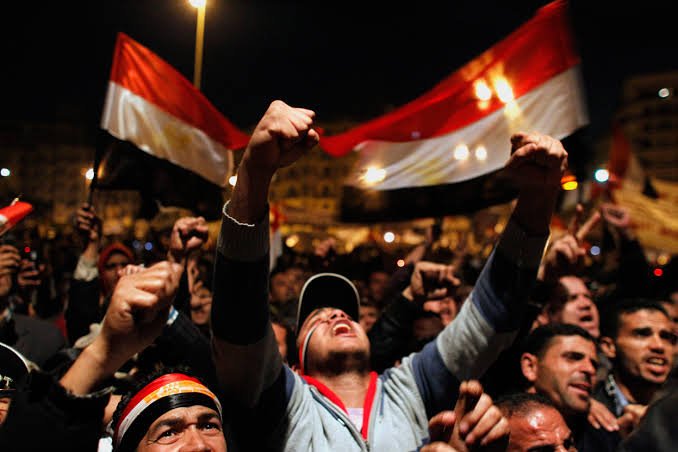
Anti-government protests broke out across Egypt Sept. 20, with thousands joining demonstrations calling for the ouster of President Abdel Fattah el-Sisi—a rare show of defiance since he established his dictatorship four years ago. Demonstrators filled Cairo’s Tahrir Square, center of the 2011 uprising that toppled longtime autocrat Hosni Mubarak. Protesters also gathered in Alexandria, Suez and Gharbiya. Videos posted on social media showed demonstrators chanting “Rise up, fear not, Sisi must go” and, reviving the slogan of the 2011 Arab Revolution, “the people demand the downfall of the regime.” Hundreds of protesters were finally dispersed from Tahrir Square by the riot police.
The protests came after prominent Egyptian real estate developer Mohamed Ali, now exiled in Spain, posted videos purporting to document corruption by Sisi and his ruling circle. Ali called on Egypt’s Defense Minister Mohamed Zaki to remove Sisi. (MEE, Al Jazeera)
The protests broke out one day after Zine El-Abidine Ben Ali of Tunisia, the first ruler ousted by the Arab Revolution in January 2011, died in exile in Saudi Arabia. (MEO)
Photo via Twitter





Mass sweeps follow Egyptian protests
More than 500 people have been arrested in connection with a wave of anti-government protests across Egypt since Friday, according to information published by an Egyptian rights group. A list of those detained was published by the Egyptian Center for Economic & Social Rights, a Cairo-based civil society organization. (MEE)
Last independent newspaper in Egypt raided by police
Egyptian security officers on Nov. 24 reportedly raided the newsroom of Mada Masr, the country’s last major independent news outlet, after arresting a senior editor in his home and deporting another who is an American citizen, the New York Times reports. (Axios)
Egyptian rights lawyer sentenced for BBC interview
An Egyptian court sentenced Zyad el-Elaimy—a human rights lawyer, former MP and one of the leaders of the Egyptian Social Democratic Party—to one year in prison and a fine of 20,000 Egyptian pounds (around US$1,270) for “spreading false news with an intent to spread panic among the people and disturbing public peace” during a TV interview with the BBC in 2017. (Amnesty International)